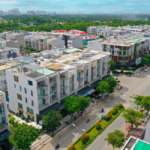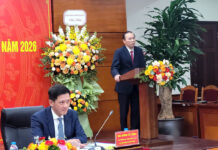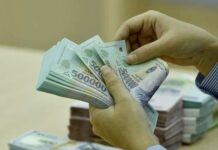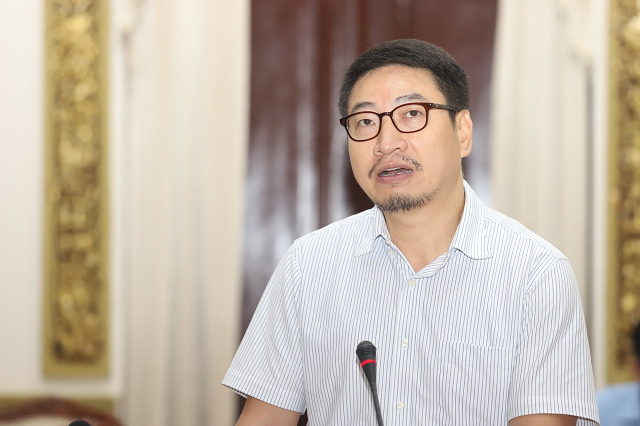On the morning of September 23rd, the Ho Chi Minh City Industry and Trade Development Forum concluded with a seminar themed “Ideas – Actions – Global Integration,” held in Ho Chi Minh City.
At the event, Mr. Trinh Tien Dung, Chairman of Dai Dung Construction Mechanical Trading Joint Stock Company (Dai Dung Group), observed that Vietnam’s mechanical engineering sector primarily focuses on small-scale processing, lacks major brands, and has limited involvement in the global supply chain. The industry also faces constraints in terms of integration experience.
According to Mr. Dung, following consolidation, Ho Chi Minh City accounts for approximately 23-25% of the nation’s GDP. The city holds significant potential for mechanical engineering development but remains fragmented, lacking a comprehensive plan and long-term regional connectivity.
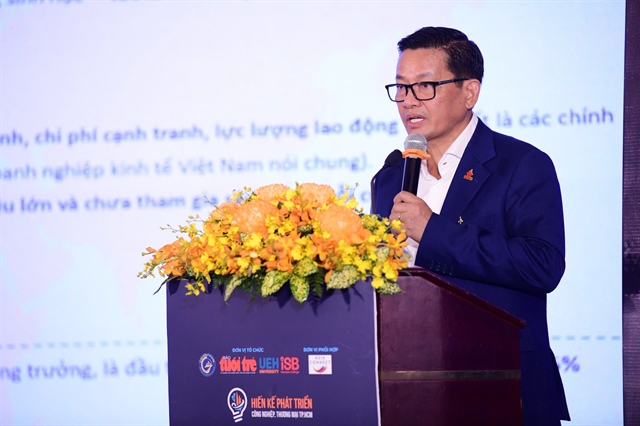
Leadership of Dai Dung Group advocates for a coalition among major domestic enterprises. Photo: Organizing Committee |
With nearly 20 million residents in the expanded economic zone, a robust maritime and logistics ecosystem, and a dynamic business community, Ho Chi Minh City has the potential to emerge as a leading heavy industrial and supporting industry hub in Southeast Asia. This center could replace current suppliers from developed nations.
To achieve this goal, Mr. Dung recommends that Ho Chi Minh City develop a comprehensive strategy for the mechanical engineering sector until 2035, with a vision extending to 2050. Simultaneously, state management agencies should plan specialized industrial zones for mechanical engineering, integrating various ecosystems.
Examples include the Suzhou Industrial Park (China), specializing in precision mechanics, machinery, automation components, and precision tools; the Ulsan Mipo & Onsan Complex (South Korea), focusing on mechanical engineering, heavy industry, automotive, shipbuilding, and oil refining; and the Yokohama Smart City Industrial Park (Japan), specializing in precision mechanics, automotive, and robotics.
Notably, the Chairman of Dai Dung Group proposed establishing a mechanical engineering production alliance to enhance connectivity and competitiveness. This alliance would undertake major projects for the city and Vietnam.
“The alliance would include steel producers like Hoa Phat; locomotive and carriage manufacturers such as Vingroup or Thaco; technology companies like Viettel and FPT; and mechanical engineering specialists like Dai Dung, Lilama, and other capable domestic enterprises,” he stated.
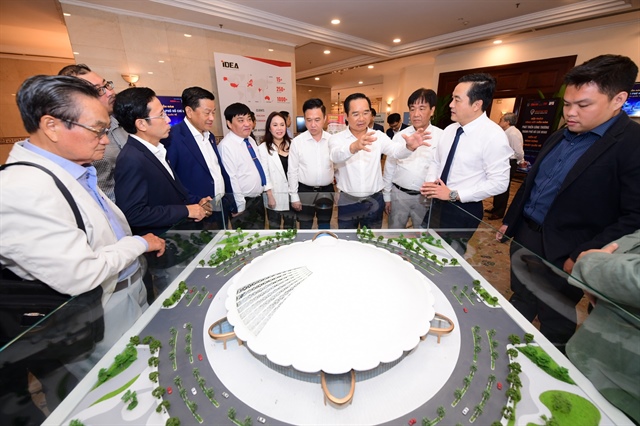 City leaders at the Ho Chi Minh City Industry and Trade Development Forum conclusion seminar, September 23rd. Photo: Organizing Committee |
In a further discussion with VietNamNet regarding this idea, Mr. Dung noted that if major domestic enterprises collaborate, they can certainly produce large-scale projects and products. Conversely, if each entity focuses on a few areas, Vietnamese businesses will remain confined to processing and subcontracting roles.
However, for enterprises to collaborate in production, alongside tax incentives, the government must provide sufficient “clean” land for companies to unite and produce together, akin to creating a “playground” for businesses.
Mr. Dung suggested that state management agencies implement policies in public tenders, mandating a minimum of 60% localization for public projects. Increasing localization rates will enable domestic enterprises to participate in projects and infrastructure development. Once sufficiently robust, businesses will be capable of exporting products and services internationally.
The Ho Chi Minh City Industry and Trade Development Forum, organized by the Department of Industry and Trade in collaboration with Tuoi Tre Newspaper and the UEH.ISB Talent School (University of Economics Ho Chi Minh City), aimed to gather insights and dedication from experts, businesses, and citizens to devise solutions for driving industrial and commercial development in Ho Chi Minh City within the new context.
Over nearly three months, the organizing committee received over 150 research papers and proposals from scientists, experts, association leaders, and businesses.
Tran Chung
– 19:09 23/09/2025
The Privé Phase 2: The Ultimate Residential Choice for the Elite
In August 2025, The Privé set a remarkable record with all 1,027 units of its Phase 1 sold out within just 72 hours.
New Developments at Bamboo Airways
A surprising signal has just been sent out by Bamboo Airways. The airline, known for its bamboo logo, has announced an extraordinary shareholders’ meeting for the second time in 2025, scheduled for September 25th. However, it’s not the meeting itself that’s noteworthy, but rather the chosen location.
Ho Chi Minh City: Low-Income Housing Projects Without Land Funds Still Eligible for Land Titles
To resolve the issue, Task Force 5013 recommends that Ho Chi Minh City issue pink books for commercial apartments no longer subject to low-income housing obligations under Directive No. 07 – 2003. Simultaneously, a financial obligation review should be conducted to definitively address disputed projects.





